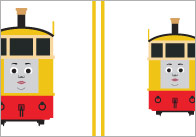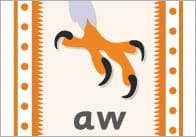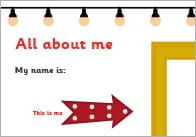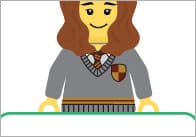“Cod in a Landslide” – Helping Children Make Sense of Strange Situations (and Improving Register Times)
We all mishear song lyrics. Some pop singers are particularly difficult to understand, but we try and make sense of them anyway. Can you identify the following misheard lyrics? (Answers at the bottom of the blog).
1. The ants are my friends/They’re blowing in the wind
2. Standing on your mama’s corpse, you told me you would wait forever
3. You’ve been outright offensive for so long now
4. Is this the real life/Or is this just Battersea?
5. Cod in a landslide/No escape from reality
6. Spare him his life for his pork sausages
7. The algebra has a devil for a sidekick eeee…
8. Eeee-wheeeh! It’s me, I’m a tree, I’m a wombat.
9. ‘Scuse me, while I kiss this guy.
10. Rocket man: burning up his shoes with aerosol.
11. Shimu the mysterious whale
12. Sue Lawley! Sue Lawley!
Children learn to talk so quickly because they are born with a drive to make sense of everything around them. As long as we talk to them in context, babies quickly realise that the sounds that come out of adults’ mouths represent objects and actions. However some of the things that adults do and say, and what we expect young children to do, make no sense at all. Here’s an example:
My wife Rachel was on her final teaching practice in a Church of England primary school in central London. Many of the children in her Reception class were from Bengali-speaking families. Rachel and the children had great fun turning their role play area into a café, and developed role play sequences to help the children learn English and to enjoy playing with each other. Rachel hid a cassette recorder in the area, to record what children were saying as they played. She hoped to use this in an assignment on language development: showing the influence of her café on the children’s role play and language. However, when she played back the tape there were some very strange results.
Two Bengali boys kept singing a song with some very bizarre lyrics: “It’s me, it’s me, it’s me oh lor/ standing on a piece of bread!” What could this be? You may have spotted the opening line to the rousing hymn Standing in the Need of Prayer (‘It’s me, it’s me, it’s me oh Lord/Standing in the need of prayer.’) The words made no sense at all, so the children converted them into English words they knew that might sound vaguely similar, in the same way that millions of people have done with Bohemian Rhapsody.
There are countless other examples like these: many of them relating to Christmas carols. A child drew a Nativity scene, with Mary, Baby Jesus and a very fat man in the background. When asked by his teacher to explain who the rotund gentleman was, he replied, “Round John Virgin, mother and child.”
This is quite funny, and no harm is done. However in some settings very young children start off their day in confusion, which can have an impact on their behaviour and self-esteem. I’m referring to registration, where all the children in the setting sit together and each child is expected to answer verbally when their name is read out by an adult sitting at the front of the group. This is not necessarily the confusing part of the exercise, but difficulties can arise when children are then expected to count and say how many children are present, identify that number (which will always be over 20), then describe the weather, establish what day of the week it is, then finally which month that day is in.
Now I am not saying that taking part in this list of activities is going to be problematic for all children involved. Some children really enjoy it. However they will almost certainly have sufficient language, knowledge and social skills to be able to actively participate in a big group. They will probably be the older children in the setting, and will certainly not be two-year-olds. From my observations, many young children can be very stressed by sitting in large groups, including children anxious about talking. These children will be unable to respond to the demand to answer verbally when their name is called, or even to make eye contact or lift their hand or nod in response. Other children show that they are stressed by ‘acting out’ and this can lead to challenging behaviour. The law in England relating to registration states that the person in charge needs to know who is present at the beginning of each session. It does not state how this should be done, and it is only a tradition that children should answer verbally when their name is read out.
So what is a more positive alternative? Here is a short list of tried and tested activities that are working successfully in settings across the UK. They all include ‘self-registration’, where children are helped to show that they are present. This often includes children and parents collecting the child’s card and attaching it to a display as soon as they arrive.
– At the beginning of the year, each child is assigned a ‘Key Person’ and ‘Family Group’, led by the Key Person.
A member of staff stands by the door and greets each child and ticks their name off in the register. (This works best if two adults are available: one for ‘meet and greet’ and one for the register.)
– Each child has a card with their photo and name on. The cards are placed on a table by the door. Parents help children to find their card and attach it to the display.
– Children go straight to play.
– 15 minutes into the session, a signal is given for the children to split into ‘Family Groups’ with their Key Person.
– In the family groups, the children can sing a ‘hello song’, share news and perhaps take part in a short activity. The activities can be planned to meet the needs of the group, and could include ‘day of the week/month of the year’ if appropriate.
It can be quite a challenge to make these changes to the daily routine, but many settings would never go back to their old arrangements, because it is better for the children, parents and staff. Children and parents find it easier to separate from each other, children learn to recognise their own and each other’s names very quickly, and children’s wellbeing increases because they can go to play immediately. Being in smaller groups increases opportunities for children to participate, listen to and learn from each other.
I would love to start a discussion on this topic, so please do respond below. I’d also love to hear about your misheard song lyrics and what your children make of some of the songs we share with them!
More information about self-registration is available in Supporting Quiet Children by Maggie Johnson and Michael Jones, available from www.lawrenceeducational.co.uk and at www.talk4meaning.co.uk
Answers:
1. Bob Dylan: Blowin’ in the Wind; 2.Bryan Adams: Summer of 69; 3. The Eagles: Desperado; 4, 5, 6 & 7: Queen: Bohemian Rhapsody; 8. Kate Bush: Wuthering Heights; 9. Jimi Hendrix: Purple Haze; 10. Elton John: Rocket Man; 11. U2: She Moves in Mysterious ways; 12. The Police: So Lonely
Comments
Leave a Reply
Popular Teaching Resources
Stay Up To Date
Sign up for our newsletter and we’ll let you know when we create new early years resources.






When reading or talking to the children I am always very conscious of the words I use and try to think, ” will they understand or know what this word means?” This stems back from the time my daughter was in primary school learning an Australian folk song – Kookaburra sits on the old gum tree….. I asked her one day if she knew what a Kookaburra was and she replied, “a little old man.” As the song goes on – merry, merry king of the bush is he – I quite understood where she was coming from; I mentally chastised the teacher for missing a learning opportunity. Now a teacher myself I try and say things using words the children will understand but where necessary, i.e. we are talking about a new topic or there is a new word introduced in a story, we talk about the words meaning and practice saying it together. P.S. love the song lyrics; I’m sure someone, somewhere could write a whole book on them
Great articles on many levels but I entirely agree about the sitting on the carpet for an excessive amount of time and have used all of your examples. My preferred is to self register, play, meet in key person group and sing the good morning song! And for songs my favourite is a child asking to sing “zig a zaggy” in assembly when asked to sing it the sang to the tune of “sing hosanna!”
We have a Nativity song I wrote some years ago which goes ‘Eeaw, eeaw, what do you think that I just saw…’ One year, a child said he wanted to be a dinosaur for the Nativity. I gently suggested (not stated) that I didn’t think there was a dinosaur there and he sang ‘Eeaw eeaw what do you think the dinosaur’ – well, silly me, of course the dinosaur was there…..